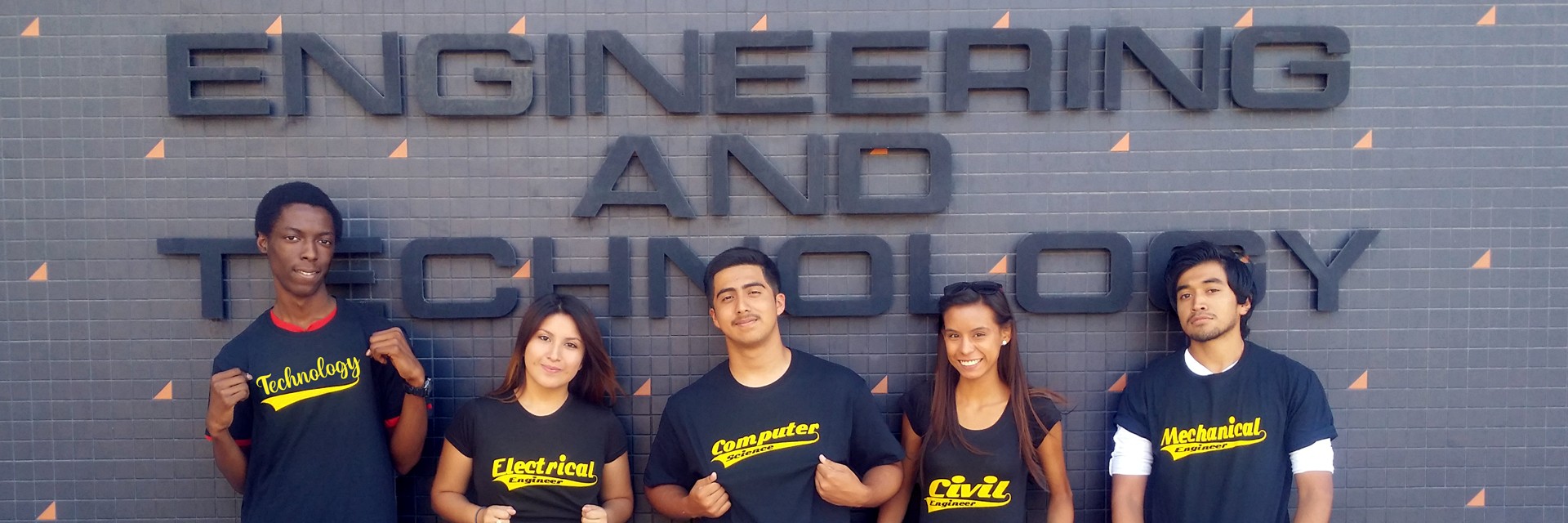ECST Advising Center (EAC) Syllabus
Mission Statement
The ECST Advising Center (EAC) empowers students to take responsibility for their education by fulfilling their educational objectives through the development of meaningful educational plans aligned with their academic, personal, and professional goals and their understanding of their decision making process. Our Professional Advisors and Peer Advisors are dedicated to student success and assisting students in reaching their academic and career goals in collaboration with faculty and other campus resources.
Definitions
Academic Advisement
Academic advisement is an educational process that, by intention and design, facilitates students’ understanding of the meaning and purpose of higher education and fosters their intellectual and personal development toward academic success and lifelong learning. (NACADA, 2004)
Personal Advisement
Personal advisement is the assistance to students with non-academic issues which may impact their educational progress and the referral to appropriate campus resources. These issues often relate to time management skills, study skills, transitioning and adjusting to college, stress management, financial aid, and family and relationship issues among others. The primary emphasis is on supporting students to achieve their educational goals. Students are referred to Counseling and Psychological Services (CAPS) on campus for further support.
Career Advising vs. Career Counseling
Career advising is an interactive process that “helps students understand how their personal interests, abilities, and values might predict success in the academic and career fields they are considering and how to form their academic and career goals accordingly” (p.12). Career counseling that seeks to assist students with the complex career-related personal concerns. (Gordon, 2006).
Advising Model
The EAC utilizes a developmental advising model defined as: a systematic process based on a close student-advisor relationship intended to aid students in achieving educational, career, and personal goals through the utilization of the full range of institutional and community resources. Developmental advising relationships focus on identifying and accomplishing life goals, acquiring skills and attitudes that promote intellectual and personal growth, and sharing concerns for each other and for the academic community. (Ender, Winston, & Miller, 1984, p. 18-19)
Practical applications include the establishment of integrated services including orientation, advising, experiential opportunities, and career planning.
Contact Information
Location: E&T Building, A-125
Phone Number: 323-343-4574
Office Hours: Monday – Friday, 8:00 am – 5:00 pm
Advising Resources
EAC Syllabus
Golden Eagle One I.D Card
Golden Eagle Territory (GET): https://get.calstatela.edu/
University Catalog: http://ecatalog.calstatela.edu/
Schedule of Classes: /classschedule/
College of ECST Website: /academic/ecst/
ECST Curriculum Sheets and Major Roadmaps
GE Worksheet for ENGR, CS, and Tech Majors
Lower Division General Education Semester Requirements
We Serve
- Engineering majors (CE, EE, ME) currently working on completing their math and physics series.
- Computer science (CS) majors currently working on their math (up to Calculus II) and computer science program series.
- Technology majors (ITEC, AVAD, and FPAT) currently working on their first and second year of their curriculum.
- Prospective students seeking general information regarding ECST degree programs, program requirements, and transfer admission requirements.
Goals and Objectives
The primary goal of the EAC is to provide quality academic advising to students that promotes student growth and development through a collaborative relationship between student and academic advisor. We are committed to:
- Assisting students clarify and/or identify their interests and abilities.
- Assisting students identify educational, personal, and professional goals and making educated decisions consistent with their goals in developing meaningful educational plans.
- Providing accurate and timely information concerning major and institutional policies and procedure.
- Monitoring student progress towards timely degree completion.
- Advising on opportunities that may enhance their educational experiences and connecting them with student organizations and campus resources.
Services Provided
The ECST Advising Center provides the following services:
- One-on-one and group academic advising including general education and major academic requirements, course schedule planning, goal-setting
- Academic intervention, probation, and disqualification advising
- Career Planning, leadership, professional, and personal development
- University policies procedures, deadlines, forms, and campus resources
- Freshmen and Transfer Orientation academic advising
- Information about admission requirements for prospective students
Meeting with an Academic Advisor
Academic advising appointments are strongly encouraged.
Scheduling an Appointment
Students must make an appointment in advance to guarantee advisement time with a Staff Advisor or Peer Advisor. Appointments are scheduled for 30 minutes and must be scheduled in advance (no more than two-weeks in advance).
Students may make appointments in one of the following ways:
- Go to the ECST Website's Advising page and click on the Student Stuccess Collaborative Icon on the top right-hand side.
- Call the ECST Advising Center’s front desk at 323-343-4574.
- Visit the ECST Advising Center and maket an appointment in person.
Appointment Cancellation
- If students are not able to keep their appointment they must cancel the appointment on SSC or call the office as soon as possible to cancel or reschedule for another time.
- Students may have their appointments cancelled if they are 10 minutes late.
Drop In/Walk In Academic Advising
- Drop-in advising appointments are available on a first-come-first-serve basis provided a staff advisor or peer advisor’s schedule permits it. See Drop-In hours on the ECST Website Advising page.
- If students need assistance with only quick questions (“where do I…how do I…where is…) or a referral, they may drop in the advising center without an appointment to talk to the front desk receptionist.
Student Preparation Before the Academic Advising Appointment
In order to maximize the advisement experience, students are highly encouraged to do the following:
- Bring their Golden Eagle One I.D. Card to the advisement appointment which is needed to sign-in and out from the advisement appointment as well as logging into GET.
- Come to the advisement appointment prepared with a list of questions or concerns that may be discussed.
- Bring a tentative plan and be prepared to identify and discuss obstacles with a staff advisor that may have caused academic difficulties. The staff advisor will complement the plan by providing strategies for success.
- Bring any previous documents (curriculum sheet, GE worksheet, yearly plan, forms, etc.) regarding their academic plans to review and answer questions they may have.
Responsibilities & Expectations of Staff/Faculty Advisors and Peer Advisors
Students may meet with either a professional advisor or a peer advisor when the professional advisor is not available. The peer advisor is a graduate or upper-division undergraduate student). Students are encouraged to visit their faculty advisor for any additional academic advising or career counseling. The following are responsibilities of professional advisors and peer advisors.
|
Responsibility |
ProfessionalAdvisors |
Peer Advisors |
|
x |
|
|
x |
|
|
x |
x |
|
x |
x |
|
x |
x |
|
x |
x |
|
x |
|
|
x |
x |
|
x |
|
|
x |
x |
|
x |
x |
Expected Student Learning Outcomes
Through the academic advising experience, students will be able to do the following:
OUTCOME 1: Students will explore and identify their academic and career goals.
Actions:
- Advisor s will work with students in developing a list of academic and career goals.
- Advisors will refer students to faculty advisors and/or industry advisors to further explore career options and provide them with opportunities to interact with faculty during strategic events and programs.
OUTCOME 2: Students will develop educational plans and semester course schedules to achieve their academic and career goals.
Actions:
- Students will meet with the advisor at least once per semester.
- Advisors will assist students in selecting courses to achieve their goals.
- Students on probation will be required to meet with an advisor prior to registering.
- Advisors will review
OUTCOME 3: Students will take responsibility for making informed decisions and actively participate in the advising process to achieve their goals.
Actions:
- Advisors will provide students with a list of expectations
- Advisors will review graduation requirements, and how they impact the choice of courses.
- Advisors will review university policies, procedures, and campus resources.
OUTCOME 4: Students will effectively utilize GET for class registration, verify and accept financial aid awards, review unofficial transcripts, check for holds and pending “to do list” items, and update personal information.
Actions:
- Advisors will assist students navigate GET as needed.
- Advisors will review campus resources and services to enhance educational and personal success and refer students as needed.
OUTCOME 5: Students will develop a rapport with their advisor (s) through advising appointments.
Actions:
- Advisors will ensure the academic advising experience is non-threatening experience based on trust and mutual respect.
- Advisors will strongly encourage students to make an advising appointment to ensure availability, planning, preparation before the appointment, and a more pleasant and productive experience.

